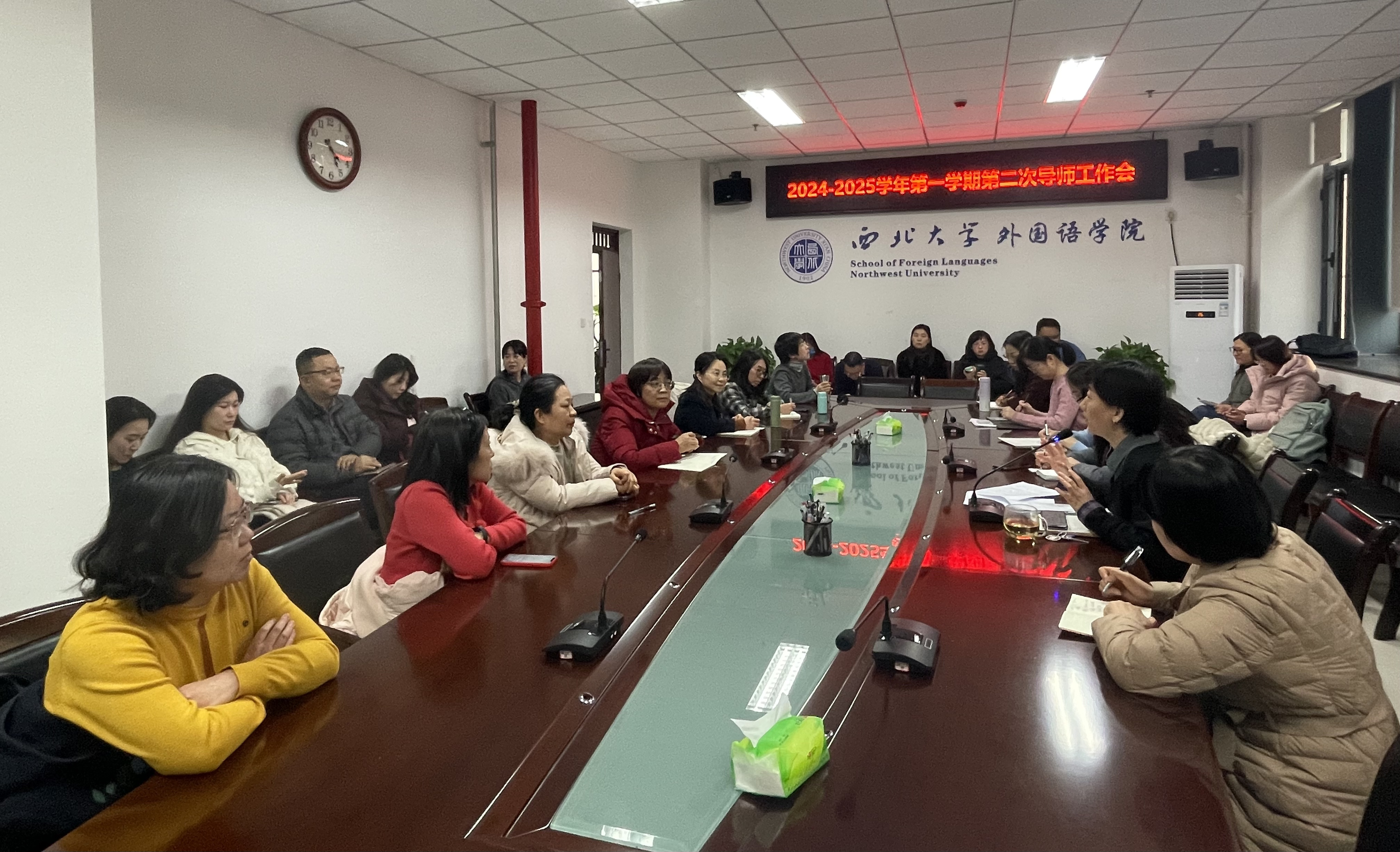To better carry out the task of fostering moral character and improve the monitoring and quality of graduate education, the School held its second graduate supervisor meeting on the afternoon of December 18 in the fifth-floor conference room of the West Campus Building. The meeting was chaired by Dean Cao Ruonan.

In conjunction with the special evaluation of the qualification of degree programs, Dean Cao provided an update on the recent data collection for degree authorization points. She emphasized that this evaluation is a comprehensive review of the degree programs and an important opportunity to promote their growth and development. Dean Cao urged all faculty members to actively cooperate and complete the revision and improvement of course syllabi within the specified timeline. She also instructed them to conduct a survey on the employment status of graduates over the past five years.
Next, based on the thesis defense situation in the second half of the year, Dean Cao outlined clear requirements for the 2023 academic master’s thesis proposal defense and the 2022 pre-defense. First, the thesis proposal must be strictly reviewed. The thesis topic should have theoretical or practical value; the writing must be logically rigorous, clearly organized, and properly formatted. If the proposal does not meet the requirements, it must be revised and resubmitted. Second, the thesis defense process must also be strictly regulated. The pre-defense will be conducted in person, and before the defense, a full-text plagiarism report from CNKI must be submitted. The plagiarism check will follow the university’s standards for academic integrity. Theses that do not pass the pre-defense will not be sent for review.

The purpose of this supervisor training is to coordinate and prepare for the upcoming degree program evaluation. Through centralized mobilization, timely follow-up, and regular updates, we aim to lay the groundwork for the successful evaluation of degree programs next year. Meanwhile, prior to the proposal defense and pre-defense stages, the role of the supervisor as the “primary responsible person” has been clearly defined. This ensures unified understanding, clarifies work requirements, and lays a foundation for further improving the quality of graduates’ theses.